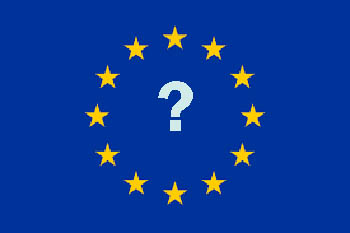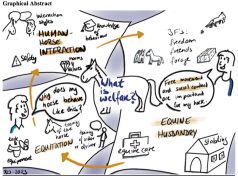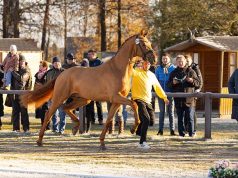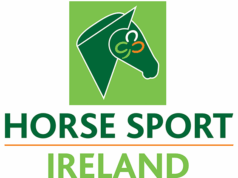By Celia Clarke
Donald Rumsfeld famously said ‘As we know, there are known knowns; there are things we know we know. We also know there are known unknowns; that is to say, we know there are some things we do not know. But there are also unknown unknowns – the ones we don't know we don't know.’ Of course, at the time of this somewhat convoluted observation, he wasn’t talking about Britain exiting the European Union (now usually referred to as Brexit).
But, bearing in mind the ever-evolving complexities of the continuing stream of unforeseen developments that have occured since the whole process started nearly three years ago, when he was referring to ‘unknown unknowns’ he could well have been.
It is a fair indication of the way all this has continued to roll out to mention that the original draft of this article was due to be published in November 2018 (one of the many Brexit negotiating deadlines that have been reached and then breached), then was revised and deferred until January 2019, then again put back to the end of March 2019 (to reflect the apparently non-negotiable date of March 29 for leaving with ‘no deal’) and then again deferred to this issue. This is not because of any definite conclusion having been reached by now – in fact with the cross-party talks to agree wording on a Parliamentary motion that will win support for the Withdrawal Agreement between Mrs. May and the EU Commission having just broken down and she herself having announced that she will resign as Prime Minister in the next few weeks, thus triggering a leadership election in the Conservative party – the situation is probably even less predictable now than it was last week. And then of course we will soon have the result of the EU elections to add into the mix too. If this seems to be a completely bizarre scenario to all of you who live outside the UK, I can assure you that it is even more of a continuing trial for all of us here who are having to live with it.
But many of you must be asking why all the apparently nit-picking theoretical political, economic and legal arguments that surface daily about Brexit (some almost in the realms of ‘angels on pinheads’) would have any effect on horse and pony breeders in the UK? The answer is because they affect very directly not only the international trade in equines and their ‘breeding products’, but also the national regulations that govern the breeding, registration, and movement of horses and ponies, the way in which studbooks and breed societies regulate the animals they register and the people who own and keep them and, finally, on the individual breeding, management, and trading decisions made by individual breeders, owners, trainers and competitors themselves.
I will take these groups one by one to show how Brexit affects them and how this then influences other sectors of the industry..To read the complete article you need to be a subscriberCLICK HERE TO SUBSCRIBE TO BREEDING NEWS
SUBSCRIBERS CAN READ THE COMPLETE ARTICLE BY LOGGING IN AND RETURNING TO THIS PAGE
International trade and EU regulations
So far, the Brexit negotiations have targetted the trading aspects of Britain’s relationship with the EU. While, to many, this is a very narrow view of what the EU is about (ignoring cultural, political, judicial and other issues revolving around a diverse array of EU activities and projects), this focus on goods and services is the one that, of course, most affects the horse breeding industry. The key factor here is that once Britain leaves the EU (whether in a ‘no deal’ or ‘deal’ scenario), it will immediately become a Third Country. As such, every studbook will need to apply to the EU to be recognised as an authorised studbook it is own right. This will facilitate the on-going registration and importation of livestock into the EU as potential breeding animals and/or as livestock with proven pedigrees to be listed in competition results with the WBFSH, FEI, WAHO, etc.
As a result, and because of the very real threat of a ‘no deal’ Brexit a couple of months ago, the UK Ministry of Agriculture,, the Department of the Environment, Food and Agriculture (known as DEFRA), took pre-emptive action and applied for this recognition for all 40 equine studbook passport issuing organisations (horse and pony breed societies that issue equine passports). Similarly, this action also included every cattle, sheep, pig, and goat herd book/breed society (as they are also responsible for monitoring compliance with EU regulations for these agricultural sectors).
Unfortunately, this process has created a chicken-and-egg situation as although the EU will almost certainly grant recognition immediately Britain becomes a Third Country, it cannot do so during any transitional period or in the Brexit lead up as Britain has not yet converted into a Third Country! Bearing in mind that there have also been a couple of rather uncalled for missives from various EU departments suggesting that British breeders register all stock from now on into EU-based studbooks to ensure continued recognition for their animals in the EU, and the fact that in order for equine passports to be acceptable to the other 27 states after Brexit, UK passport regulations, Zootechnics documents and Animal Heath Laws must be compliant in every way with the original EU regulations, this has not been helpful to British horse and pony breeders.
In turn, this situation also means that any derogations negotiated by DEFRA for British breeders in the past (such as those relating to special dispensations for feral and rare breeds) will be lost post Brexit.
One other casualty of Brexit is that the tripartite agreement between the UK, France, and Ireland is now defunct. However, in partial compensation, horses and ponies destined for a career in breeding and/or sport will now be awarded ‘high health’ status which means that veterinary checks on animals exported to the EU will be kept to the minimum.
National issues
DEFRA, mentioned in the foregoing section, is the body that represents the British horse breeding industry to the EU and the wider world. This is ironic since DEFRA has always made it very clear that the horse is not an agricultural animal and that it is a very small component of their work overall. Indeed, of the approximately 800 EU regulations that must be adopted into English law as part of the Brexit process, by far the largest group (25%) are those relating to DEFRA, which means that it has a huge job on its hands. However, there are compensations arising from this situation. To help it through this onerous task, it has set up The British Horse Council, which is now the body that DEFRA recognises as its conduit to all sectors of the equestrian community in the UK, including the myriad welfare organisations that operate within it.
In its turn, the British Horse Council has actively encouraged the formation of the 826 Equine Studbooks Association (826 is the UELN country code for GB, as the use of the words, British or National, is now prohibited by DEFRA in these circumstances) as the official representative of the studbook PIOs/breed societies on the British Horse Council and thus to DEFRA. With almost 90% membership of the nearly 50 studbook PIOs already joining after only 12 months in existence – and in regular consultation with DEFRA about a number of issues including problems with the still developing Central Equine Database and the on-going confusion over the new EU Zootechnic regulations (of which more later) – the 826 ESA has probably become the most important body in British equine breeding that no-one has ever heard of. This is because its membership is solely made up of studbooks (rather than individual breeders) plus a few specialist breeding, veterinary, and welfare consultants, so it deals almost exclusively with the British Equestrian Federation (BEF) and DEFRA, or with its studbook members when giving advice and guidance.
While this new consultative approach has done much to improve relations between DEFRA and the equine studbooks, it has sadly done little to clarify the on-going confusion over the Zootechnics documents, how they should be used, and when. As it is, the studbooks that are supposed to issue them for the breeding and exported animals that need them – as well as for any transported semen that may be used to produce progeny that could be registered in another studbook apart from their own (and what sport horse or sport pony studbook could predict that?) – this lack of clarity at national level affects studbook efficiency, export sale and breeder choice very directly.
How does all this affect the studbooks?
The UK studbooks range in size from the very large and internationally significant (e.g. Weatherbys), through a large selection of sport and riding-horse breeding organisations (e.g. Anglo-European Studbook, Sport Horse Breeding of Great Britain, etc) to the smallest and most threatened of rare and native breeds (e.g. Dales, Fells, and Exmoors). Even so they are all facing the same key issues, namely:
• How can they protect their members from the possible threat to their international market that Brexit will bring in its wake?
• How can they ensure that the registration documents they issue remain compliant both within the EU and worldwide?
• What is a Zootechnical document and when should it be used? And how can it be attached to transported semen and other breeding products?
• How can they ensure that their breeders retain access to all the bloodlines currently available to them both in Britain, the other member states, and the wider world? And in the case of the many rare and native breed Mother studbooks in the UK?
• How can they maintain breed integrity in the face of any filial studbook in the EU succeeding in replacing the original British Mother studbook as the EU Mother studbook of the breed (as it would be entitled to do once Brexit happens)?
These are all questions to which the studbooks are trying to establish workable responses, but bearing in mind the lack of clarity there is about Brexit as a whole, such issues are definitely in the ‘unknown unknowns’ category. However well the studbooks market their products (registered horses, etc), both nationally and internationally, the general uncertainly about what is – and what isn’t – permitted as far as registration acceptability, transportation, and quarantine regulations (and not forgetting the whole issue of currency fluctuation of course), is working against them. Therefore, there is little they can do to protect their breeder, owner, trainer, and exhibitor members except to try to ensure that the breed maintains as high and good a profile as possible, and that the documentation that accompanies their registered stock complies with current EU and DEFRA regulations as laid out in the DEFRA Minimum Operating Standards for PIOs (MOPS).
Possibly as a way of helping them, DEFRA is about to initiate a series of self-administered audits of studbook PIOs to check their compliance with MOPS and the Zootechnic regulations, but as there is still a considerable lack of clarity as to what a Zootechnic document looks like, where it should go in the passport, and even when it should be included, this could be yet another challenging issue for the studbooks at this already difficult moment in time.
And now to the individual breeder/owner/ producer …
What breeders outside the UK need to understand is that the bulk of sport horse and Warmblood breeders feel that they share no historical or cultural allegiance with any specific studbook. Many grade their mares with several different studbooks, and most stallions are multi-approved as well, so when a foal is registered with a specific studbook it is because that particular studbook gives the foal the best pedigree index and passport that it can achieve. This is true not only for the small number of large and internationally known studfarms, but also for the many smaller breeders, few of whom own more than four mares and who would probably be classified as ‘hobby’ breeders elsewhere.
Whilst such a structure does encourage competitiveness amongst the studbooks as far as fees, grading systems, and general perks for breeders goes, it also generates a rather fractured sport horse and pony breeding sector. This means that although the studbooks have been working hard to reduce the economic, administrative, and legal shocks Brexit will deliver within the industry when it finally happens (if it does of course, given the growing demand for a second referendum, the result of which is definitely an ‘unknown unknown’), this has thus far generally been out of sight of the breeders, owners, and trainers that it will impact directly.
Given this situation, the main concerns of the breeders themselves are currently:
• Will they still be able to have access to imported semen and breeding stocks?
• Will they still be able to import breeding animals from the EU?
• Will they still be able to register their 2019 and 2020 foals with their studbook of choice?
• Will they still be able to sell their British-bred and British-passported stock abroad – in particular to the remaining 27 EU member states, of course?
The studbooks are trying to calm their fears, but this is not an easy task given the lack of consistent guidance from national and international authorities and some (one has to say almost deliberately misleading) information from a couple of semen importing agents who are saying that Zootechnic documents are entirely un-necessary for imported semen despite being aware that this is definitely not the case in the UK sport horse breeding sector. For this reason, the British sport horse/sport pony and Warmblood breeders’ way of navitating through this is by way of a series of individual ad hoc decisions, based upon what they hope will be the best market placement for their forthcoming foals and young horses. Not a very good situation, and veering in the direction of the ‘unknown unknowns’, too.
The native and rare breeders’ sector has a much closer breed society/breeder relationship – sometimes going back over 100 years – and, as such, are working together in a generally more informed and uniform way. But their main concern is the horrendous possibility that their much-loved and highly regarded, specific breed types and bloodlines might be over-ruled by a new, non-UK-based, Mother studbook with a different view of breed standards and what they should be. Luckily, most of the studbooks have good relationships with their filial/daughter studbooks in the EU and are working to prevent this situation, but realistically, post-Brexit, they will have no control over the process.
So what happens next?
The possible scenarios for Brexit moving forward:
• Leaving with ‘Withdrawal Agreement’ confirmed by a winning vote in Parliament which will include a two-year transition period. Not very likely now that the cross-party talks have broken down.
• Leaving without a deal. Technically thought to be illegal, but if things remain unresolved by October 31, and the EU refuses to extend the current status quo, it could still happen.
• A second referendum (now usually referred to as a ‘People’s Vote’) on the current Withdrawal Agreement. It is generally assumed that the ‘remain’ voters would win, and thus halt the whole process forthwith, but the strong showing of the Brexit party might disable any crystal clear result, again!
• Abandoning Article 50 because the whole situation is impossible to achieve in any direction. This might still happen ad would again halt the process immediately, but such an action can only be triggered by the prime minister, and that is highly unlikely whatever party is in government.
In conclusion...
It is quite frankly anyone’s guess as to what may or may not happen next. So all I can ask of Breeding News readers is that, in this current situation of multiple ‘unknown unknowns’, they keep faith with their British compatriots and try to be as helpful as possible when they ask what they should do next to conserve and develop their breeding programmes and young horse production and sales. n




